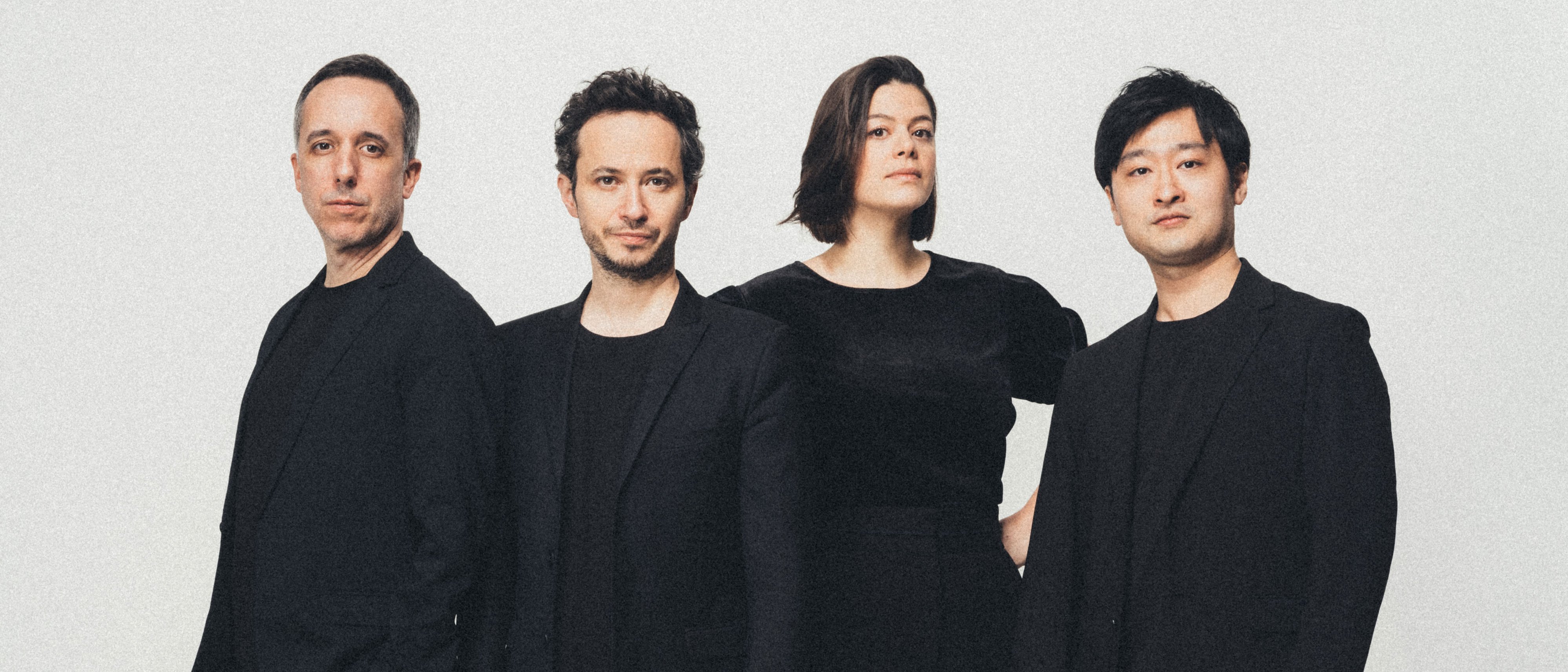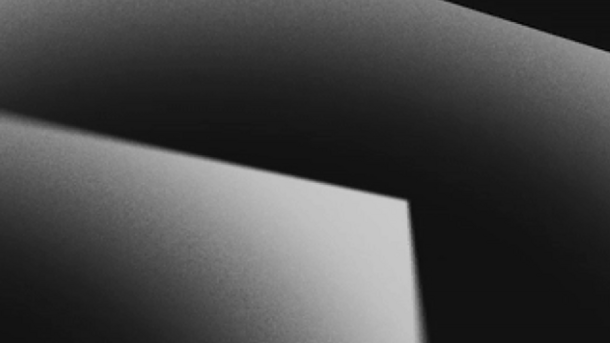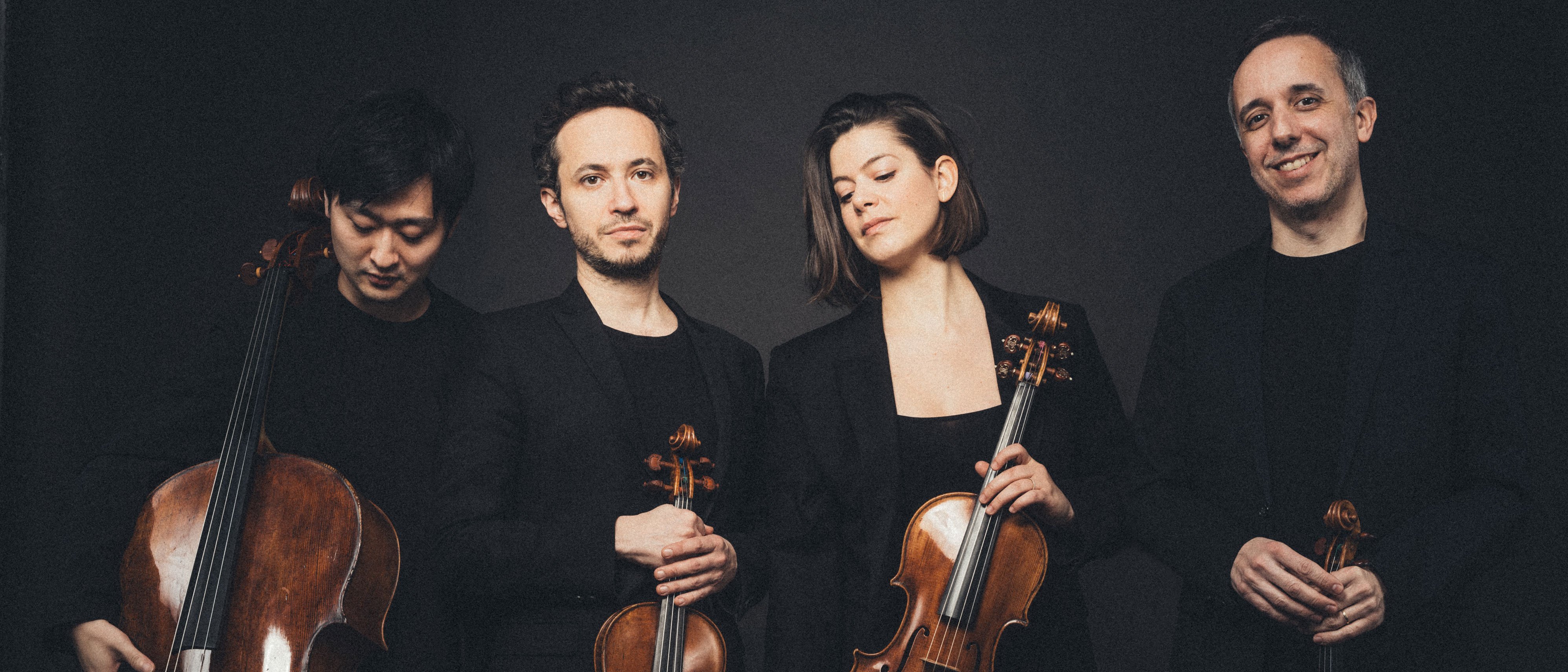
Concert information
At the invitation of the Berliner Philharmoniker
Info
Its perfect fusion of precision with spontaneity has made the Quatuor Ébène one of the world's leading string quartets. Together with solo violist of the Berliner Philharmoniker Amihai Grosz and cellist Nicolas Altstaedt – the ensemble presents Peter Tchaikovsky's string sextet “Souvenir de Florence”. Despite the chamber music instrumentation, the composer created a work of almost symphonic dimensions that ingeniously combines Russian drama with Italian grace. The programme opens with a string quartet by Joseph Haydn and highly virtuosic divertimenti by Benjamin Britten.
Artists
Quatuor Ébène:
Pierre Colombet violin
Gabriel Le Magadure violin
Marie Chilemme viola
Yuya Okamoto cello
Amihai Grosz viola
Nicolas Altstaedt cello (replacing Bruno Delepelaire)
Programme
Joseph Haydn
String Quartet in B flat major, Hob. III:78 “Sunrise”
Benjamin Britten
3 Divertimenti for String Quartet
Interval
Piotr Tchaikovsky
String Sextet in D minor, op. 70 ‟Souvenir de Florenceˮ
Amihai Grosz viola, Nicolas Altstaedt cello (replacing Bruno Delepelaire)

Chamber Music Hall
16 to 38 €
Introduction
19:30
Series T: Quartet
Biographies
Quatuor Ébène
For over 20 years, the French Quatuor Ébène has been cultivating a new, unconventional way of playing string quartets. This is reflected in their often-unusual programmes, which include not only classical repertoire, but also excursions into the genres of jazz and pop. However, the ensemble has also set interpretative standards. Its unmistakable expressiveness was already evident when the the young group entered the ARD International Music Competition in 2004 – and won.
The members of the quartet had come together five years earlier during their studies at the Boulogne-Billancourt Music Academy. The ensemble, which studied with Quatuor Ysaÿe, Gábor Takács, Eberhard Feltz and György Kurtág, is now recognised as one of the best string quartets in the world. Their recording of all of Beethoven's string quartets caused a sensation, as did their commitment to young talent as part of their Ébène Quartet Academy at the Munich University of Music and Theatre. The Quatuor Ébène is known for playing that is both homogeneous and multi-layered, profound and yet light, powerful and yet intimate. And this despite the fact that the members – as they repeatedly emphasise – often have very different opinions. But they all agree on one thing: “Creativity comes only from differences.”
Amihai Grosz
Amihai Grosz plays one of the rare violas from the famous school of Gasparo de Salò, which differs from the brighter sound ideal of Stradivari and Guarneri: “The sound,” says the long-time first solo violist of the Berliner Philharmoniker, “is more down-to-earth, woody and of course wonderfully rich in overtones. But the tone colour is somewhat darker. It sounds much nicer with lower instruments such as the cello, viola and probably also the double bass.” Grosz, who switched from violin to viola at the age of eleven, studied with David Chen at the Jerusalem Academy of Music, with Tabea Zimmermann at the Hanns Eisler Academy of Music in Berlin and with Haim Taub at the Keshet Eilon Music Centre.
He received various scholarships and prizes early on, was a member of the Jerusalem Music Centre’s Young Musicians Group and played in the renowned Jerusalem Quartet for many years. Grosz joined the Berliner Philharmoniker in 2010, which was like jumping in at the deep end for him: “I didn’t know it, I hadn’t been in any other orchestra before. And now to bring this wonderful music to life, with this strong sense of community – it’s magical. I am proud to be part of this orchestra. Because it’s like an incredible force of nature.” Amihai Grosz is also a sought-after soloist not only with the Berliner Philharmoniker and has worked with conductors such as Zubin Mehta, Tugan Sokhiev, Klaus Mäkelä, Daniel Barenboim and Simon Rattle.
Bruno Delepelaire
Regardless of whether Bruno Delepelaire brings the cello repertoire to life “with clarity and fire” (Der Tagesspiegel) or penetrates to unimagined realms of expression with the deepest internalisation: the Paris-born musician, who studied in his home city and in Berlin, “plays beautifully enough to make you cry” (Berliner Morgenpost). He has been principal cellist of the Berliner Philharmoniker since November 2013, but had already played in the orchestra’s ranks before that: “I still remember my first concert with the Berliner Philharmoniker very well. At the time, I was a scholarship holder of the Karajan Academy and we played Beethoven’s Third Symphony under Bernard Haitink. The energy emanating from the orchestra was incredible. I felt immediately swept away, it was a dream!”
Just a few months after his appointment, Bruno Delepelaire took over the solo cello in Strauss’ Don Quixote under the direction of Semyon Bychkov. Since then, he has been a regular soloist with the Berliner Philharmoniker – in works as diverse as Haydn’s Cello Concerto No. 2 and John Williams’ Elegy for Cello and Orchestra. Bruno Delepelaire, who is also a regular guest with other orchestras, has won prestigious prizes both as a soloist and with his string quartet Quatuor Cavatine. He can also be heard as a chamber musician with the Berlin Piano Quartet and with the 12 Cellists of the Berliner Philharmoniker.
Plan your visit
Opening hours, program booklets, dress code, introductions and more
How to get to the Philharmonie Berlin
Whether by bus, train, bike or car: Here you will find the quickest way to the Philharmonie Berlin - and where you can park there.
Ticket information
Advance booking dates, opening hours, seating plans, discounts
